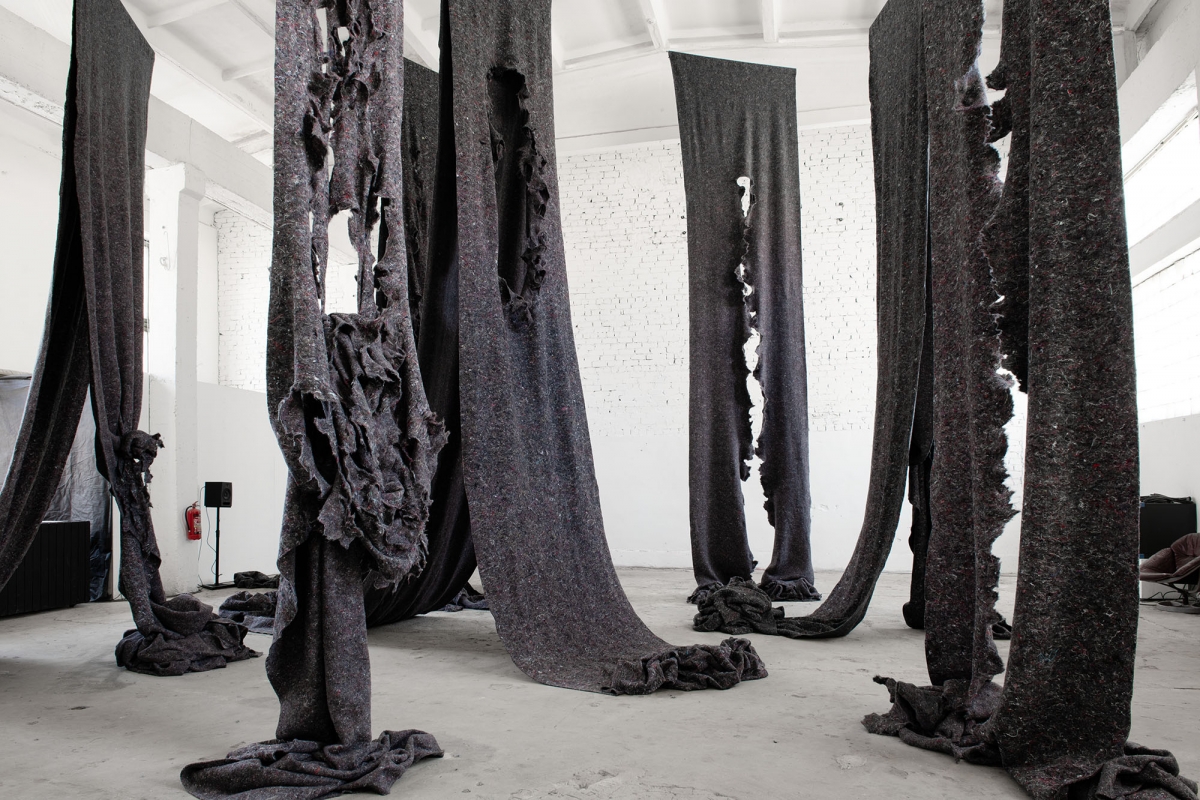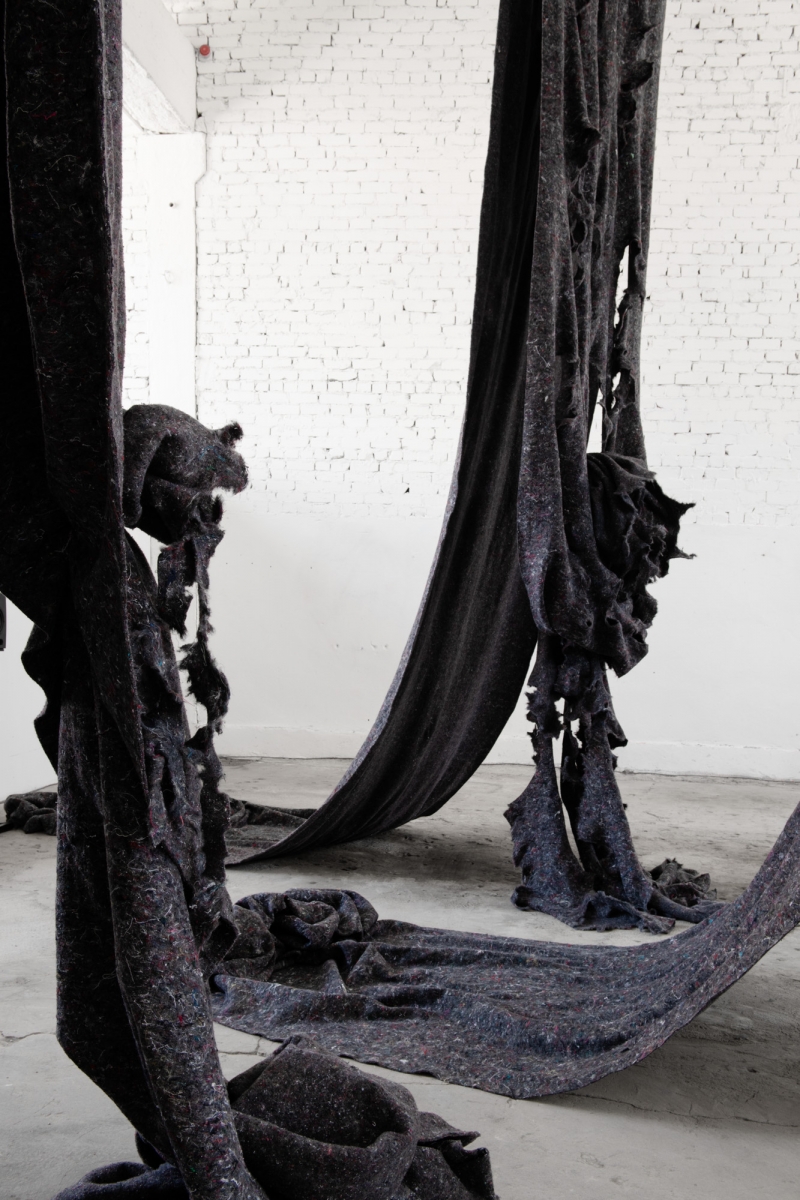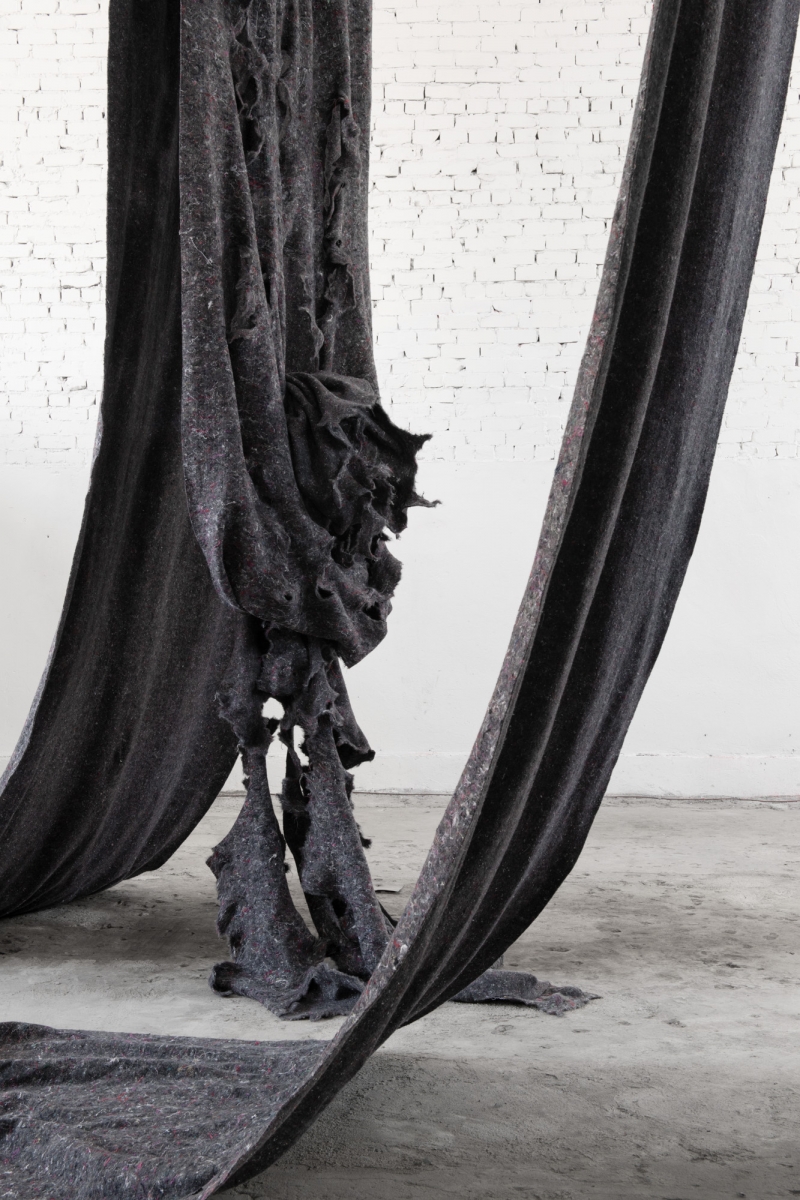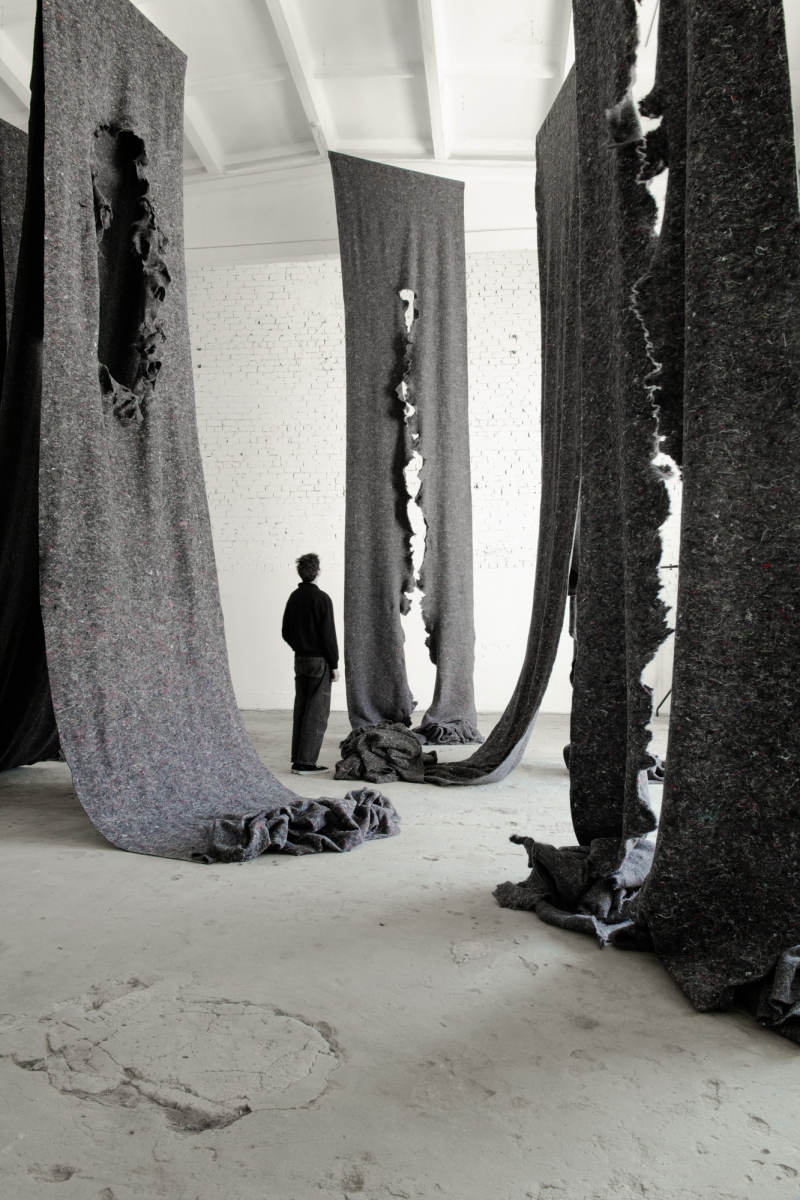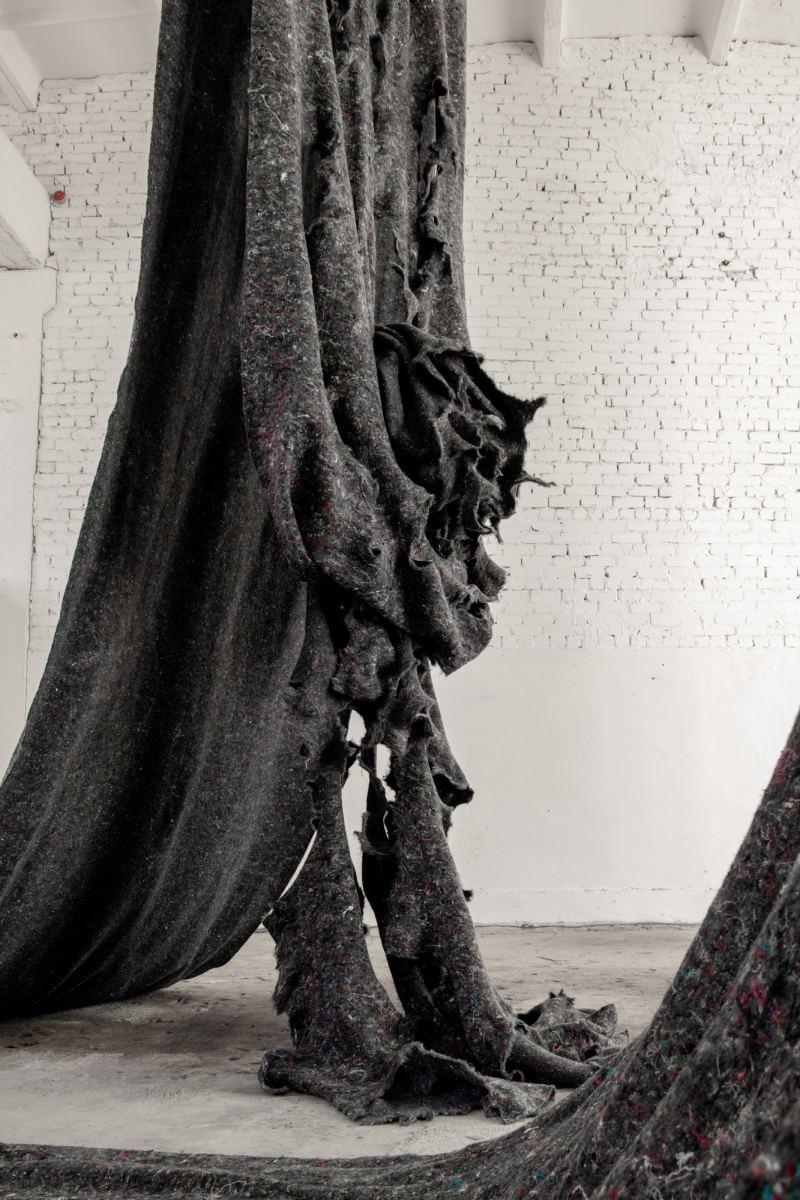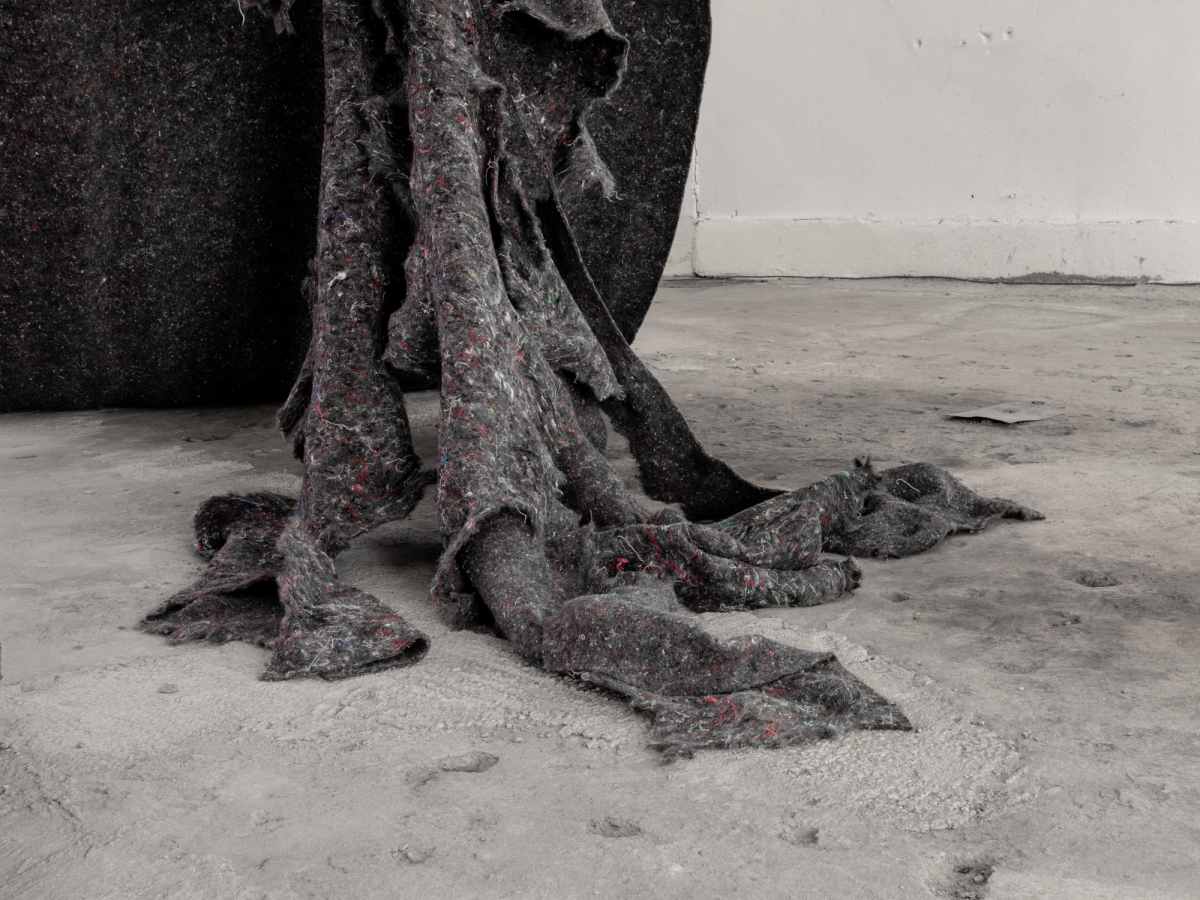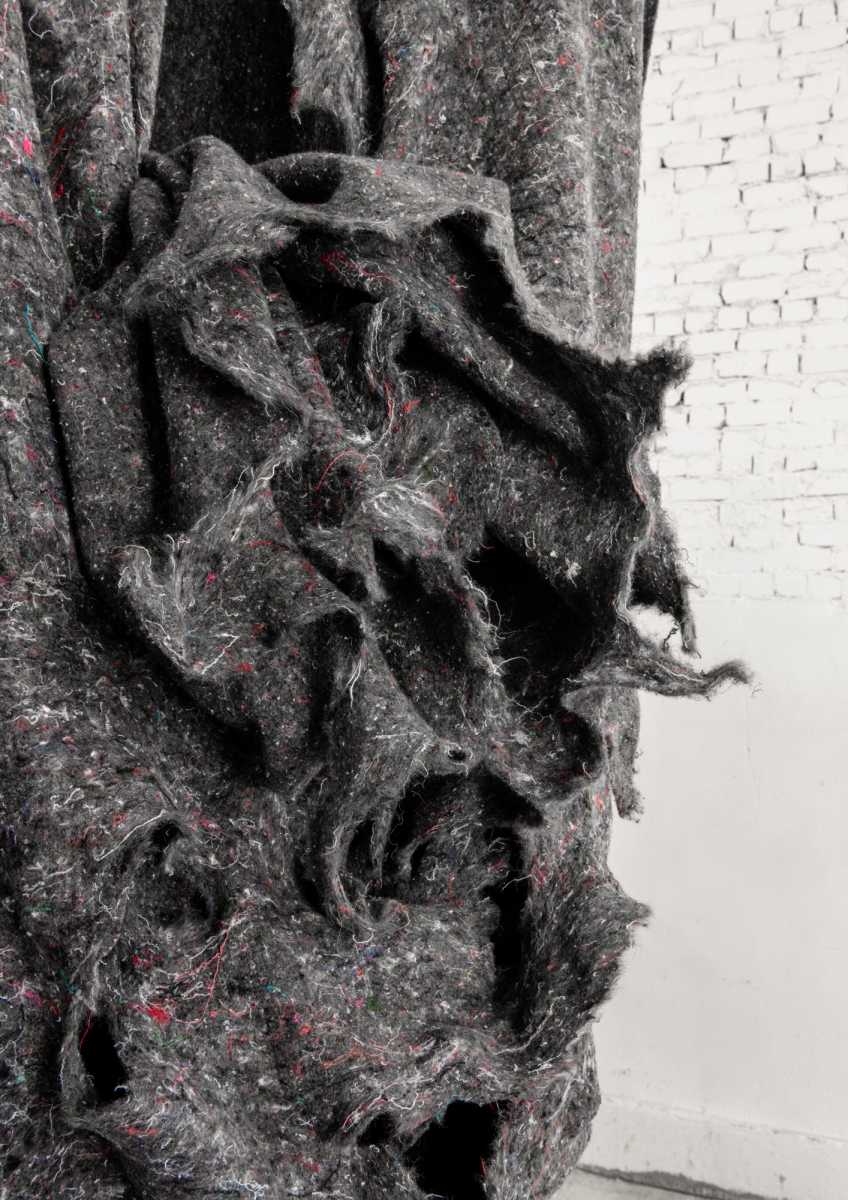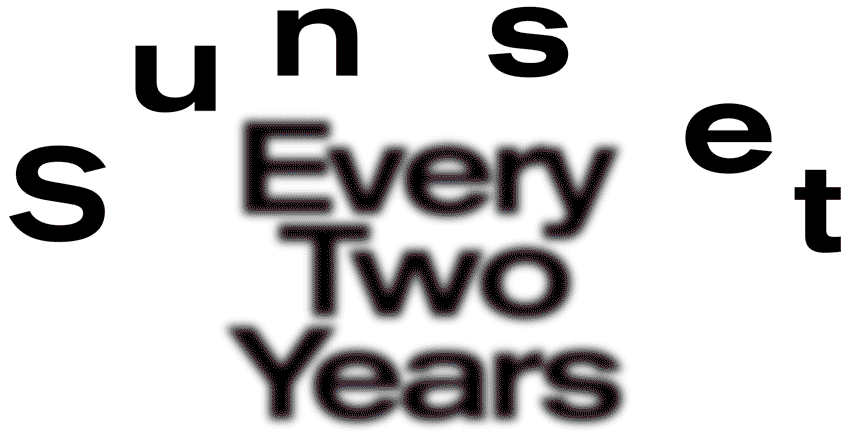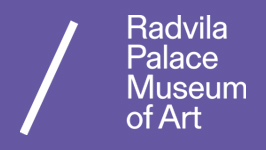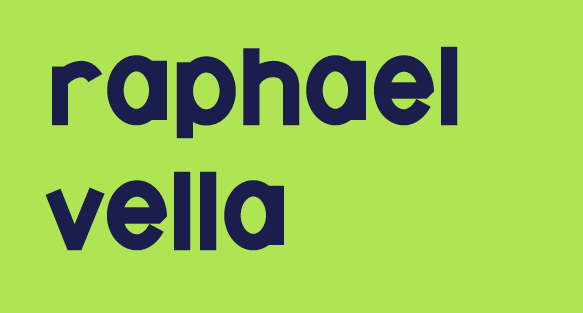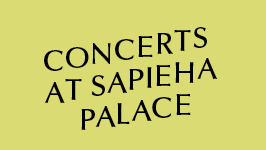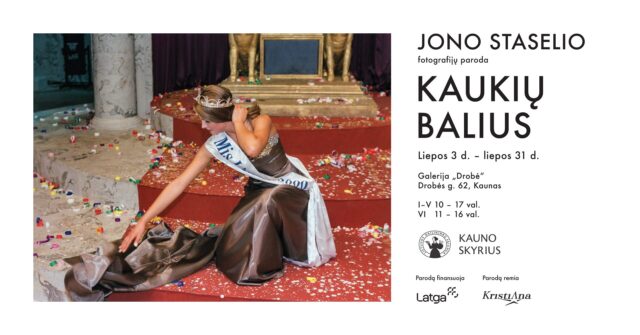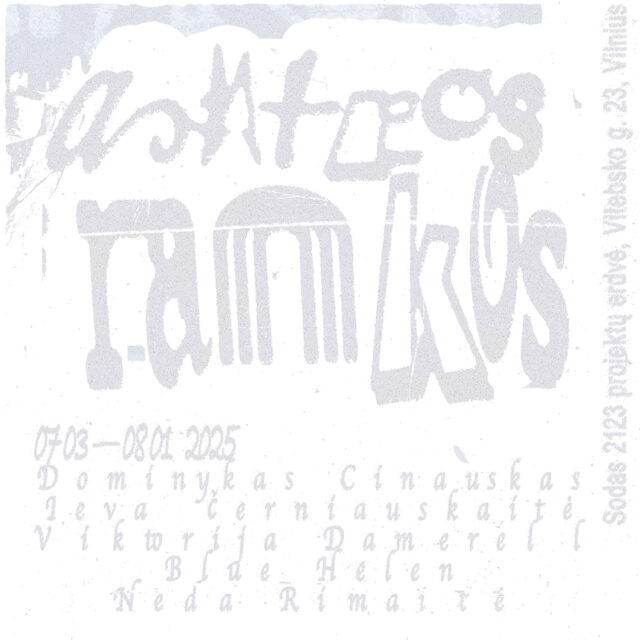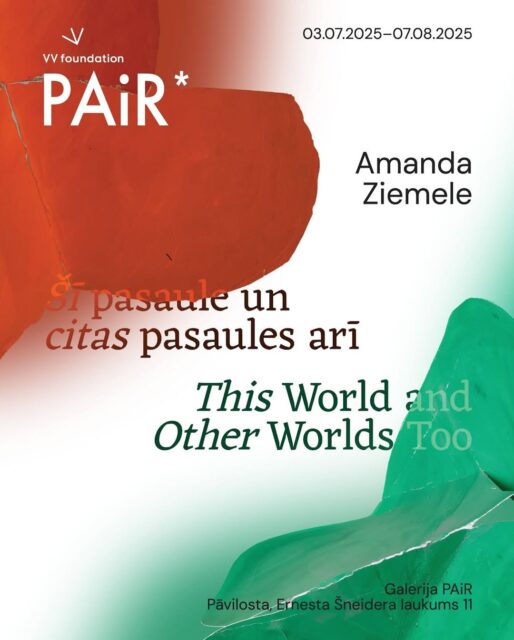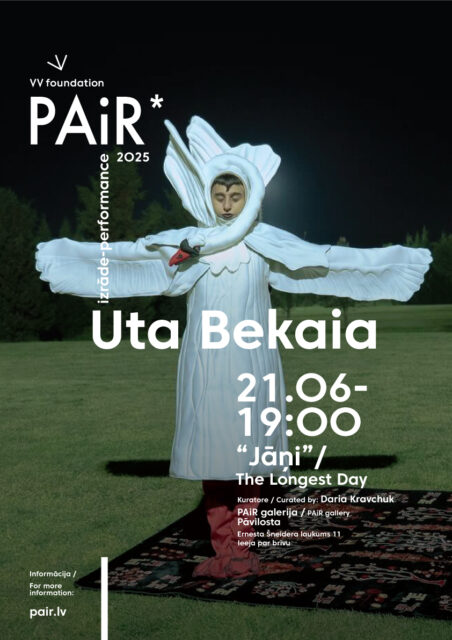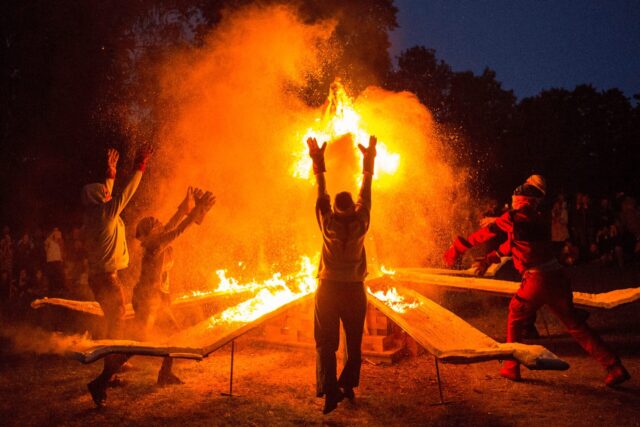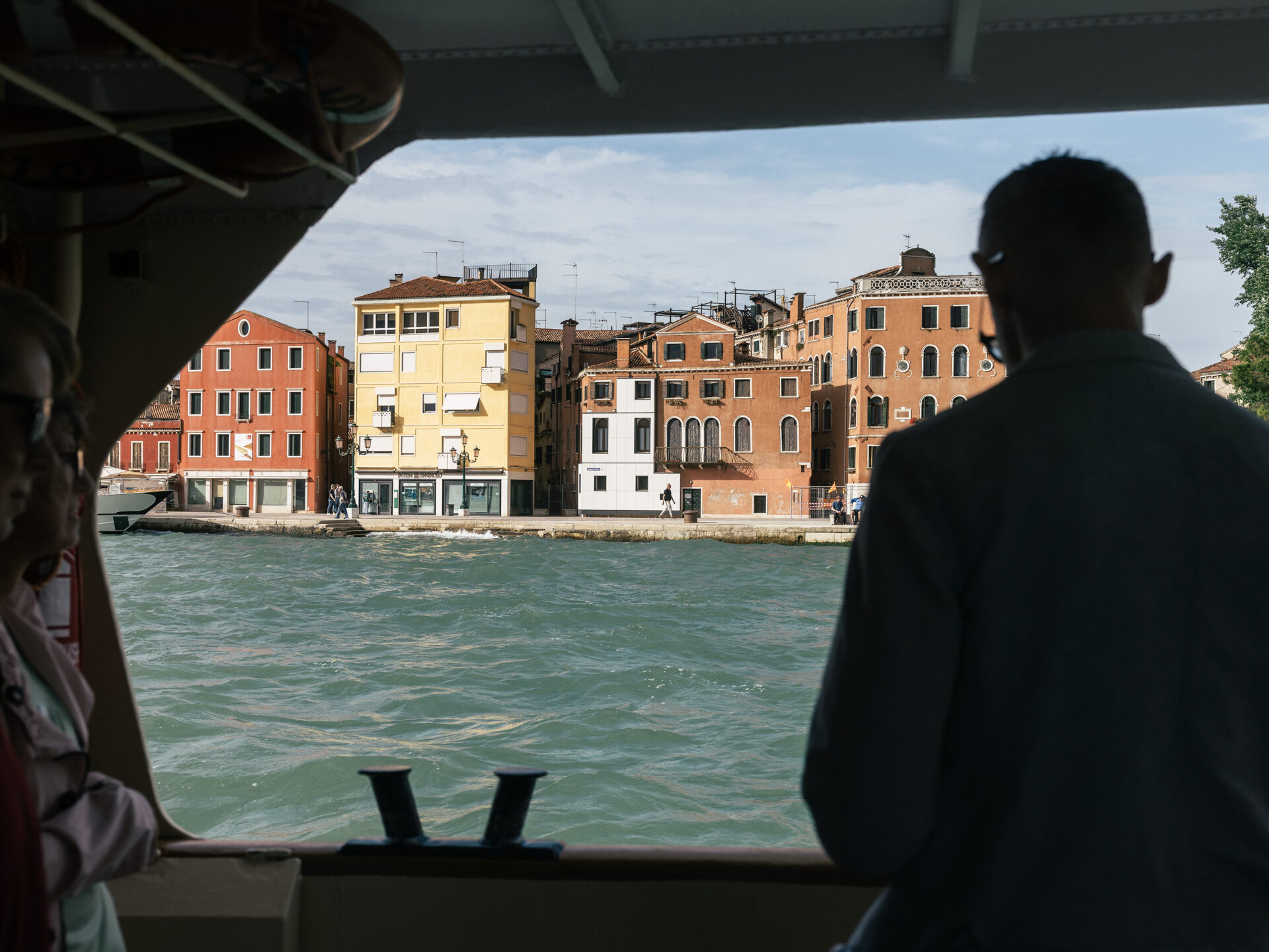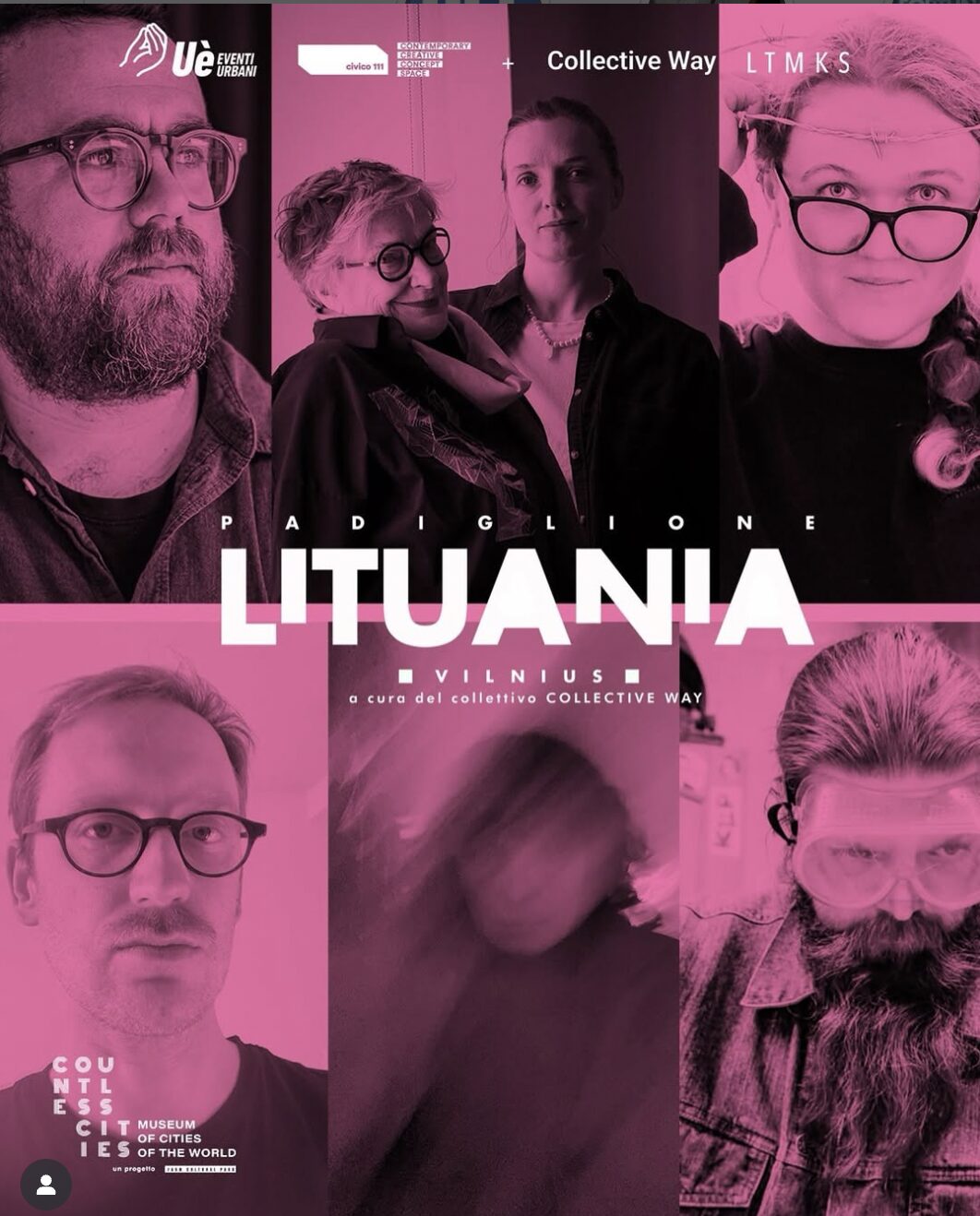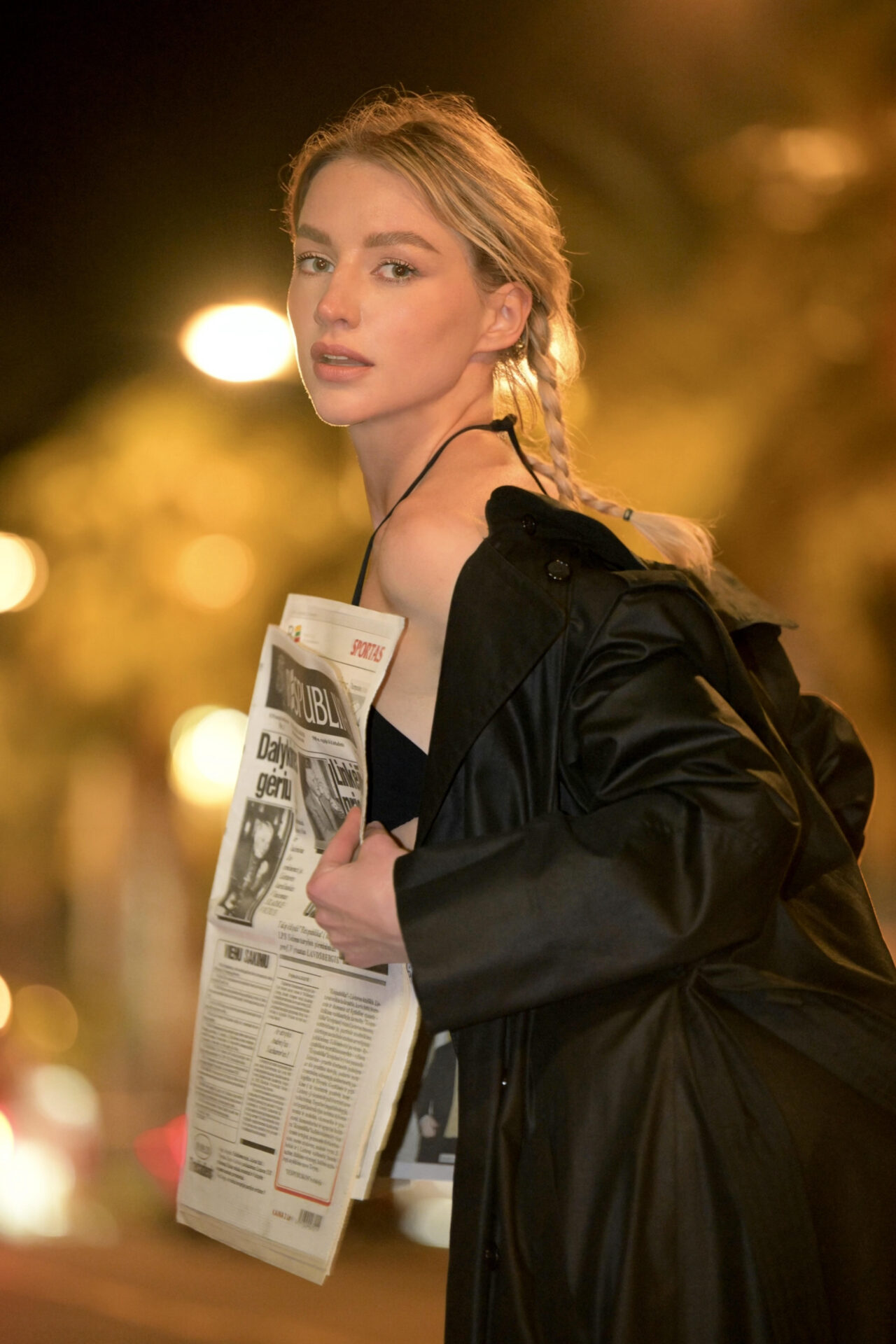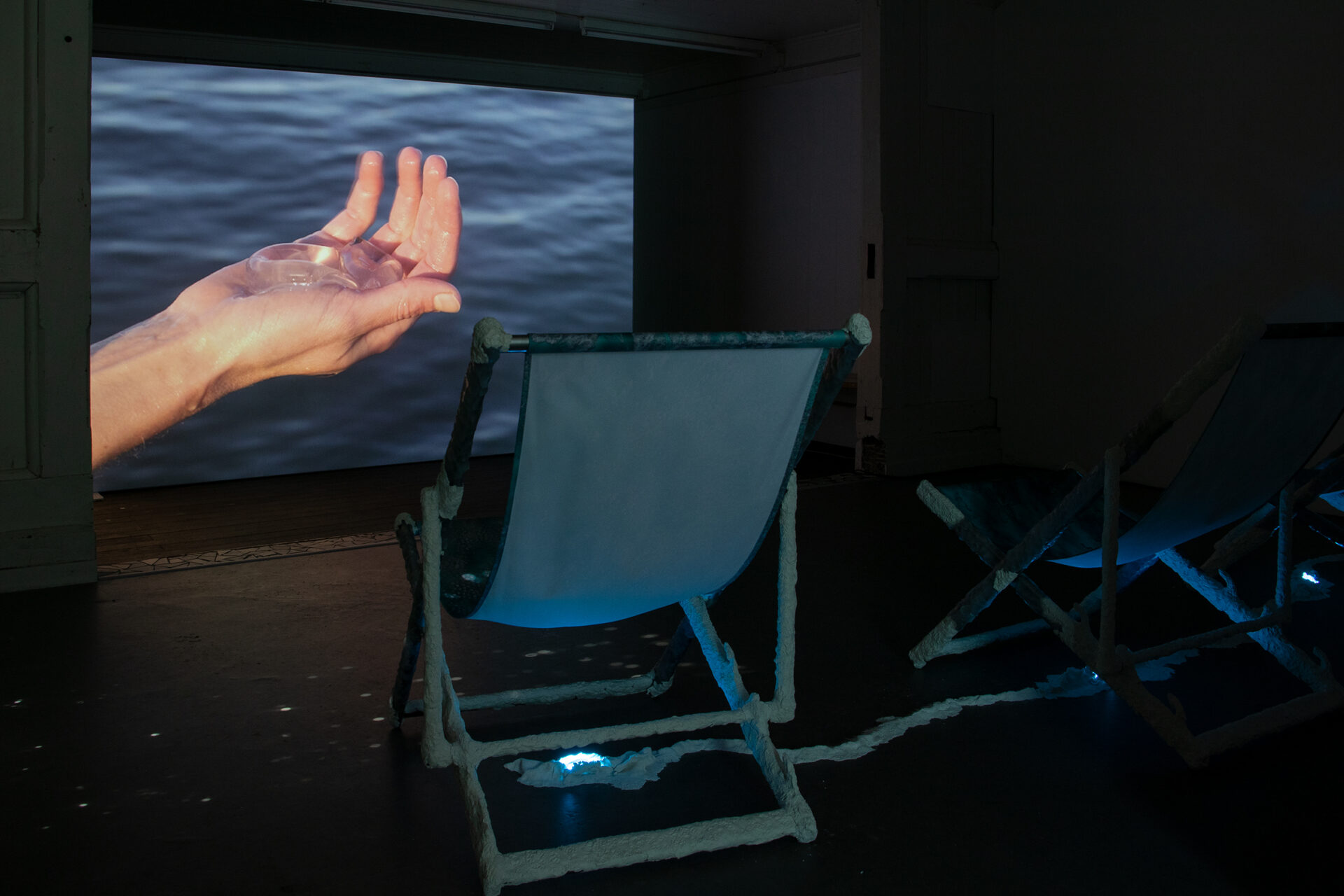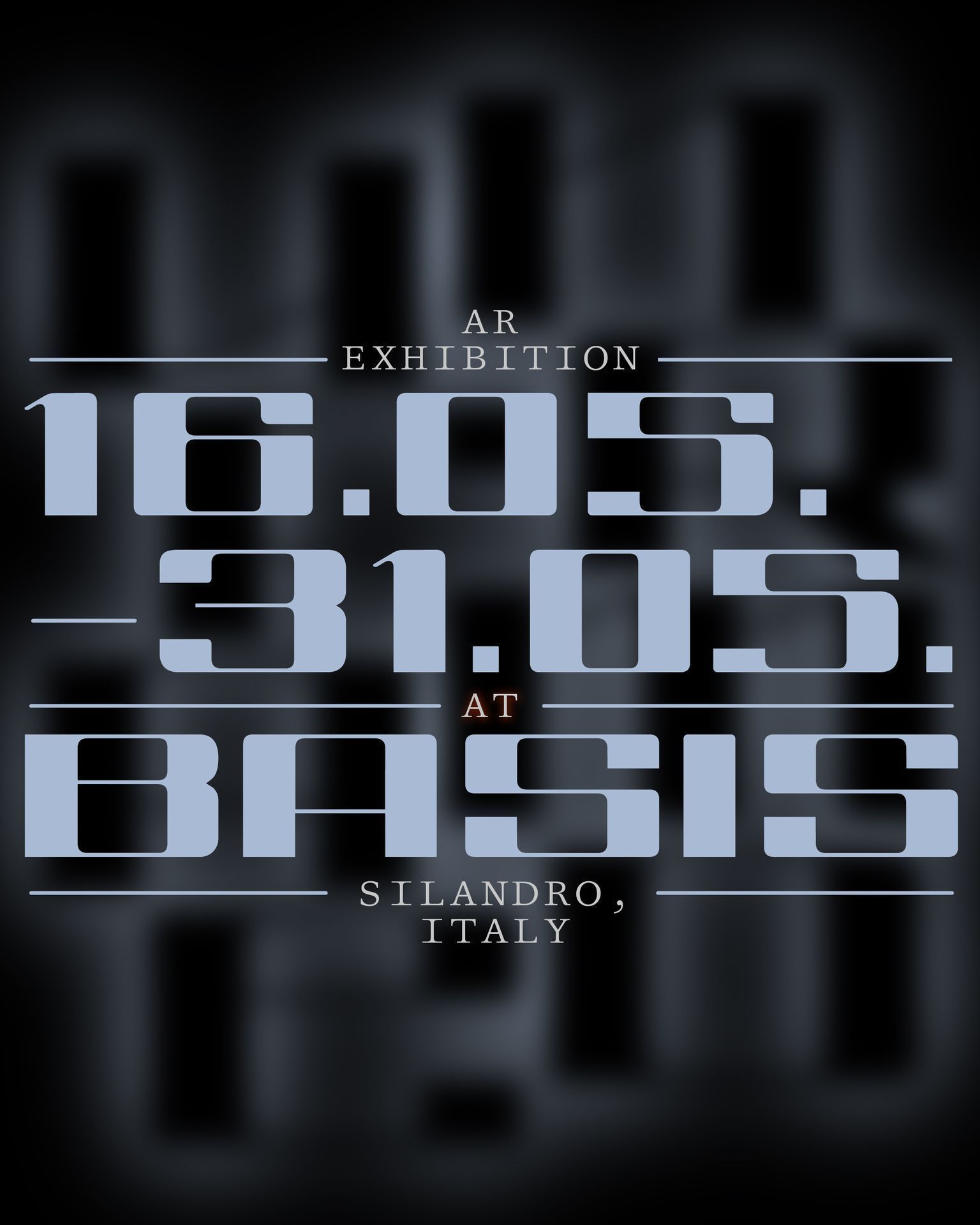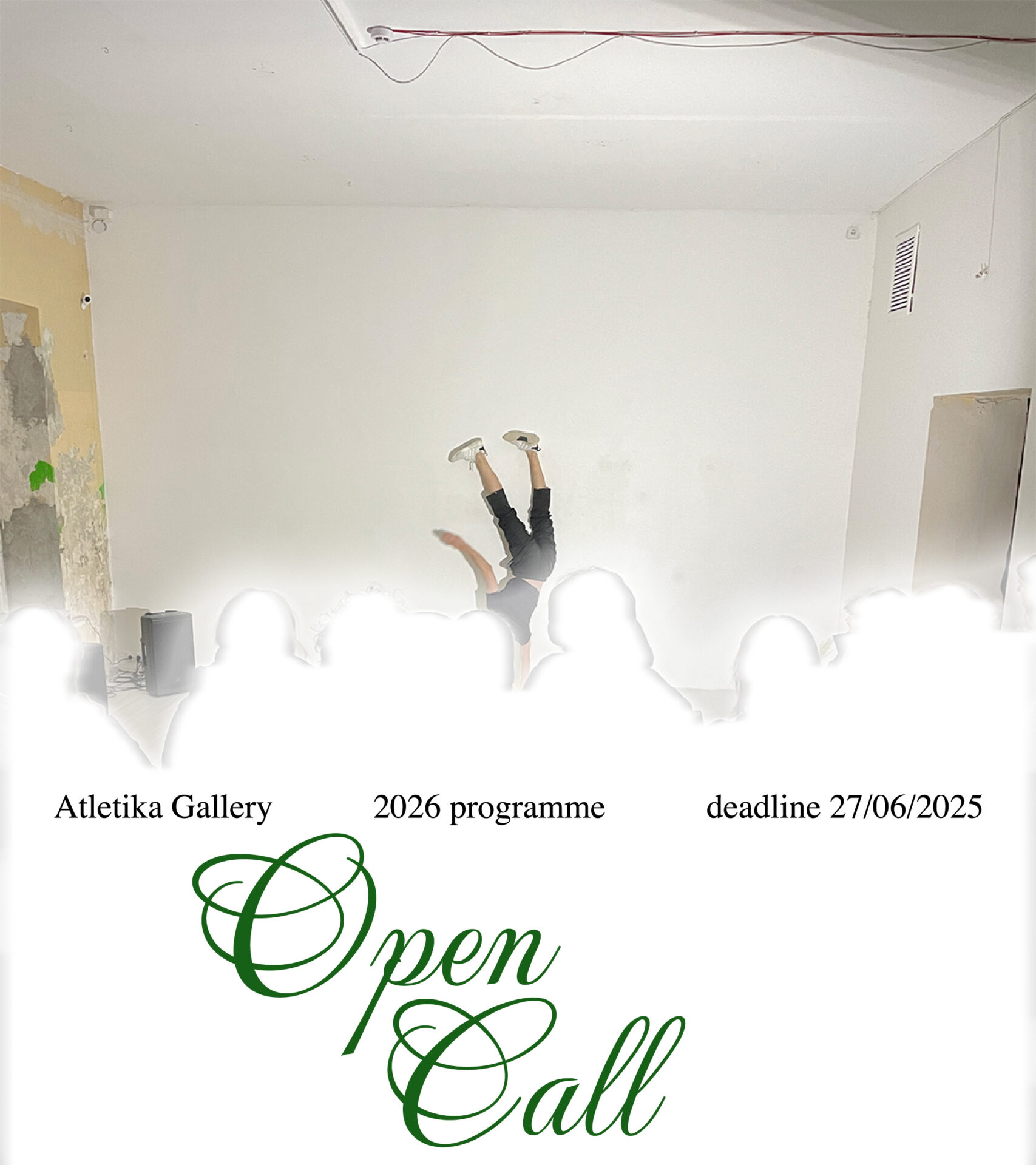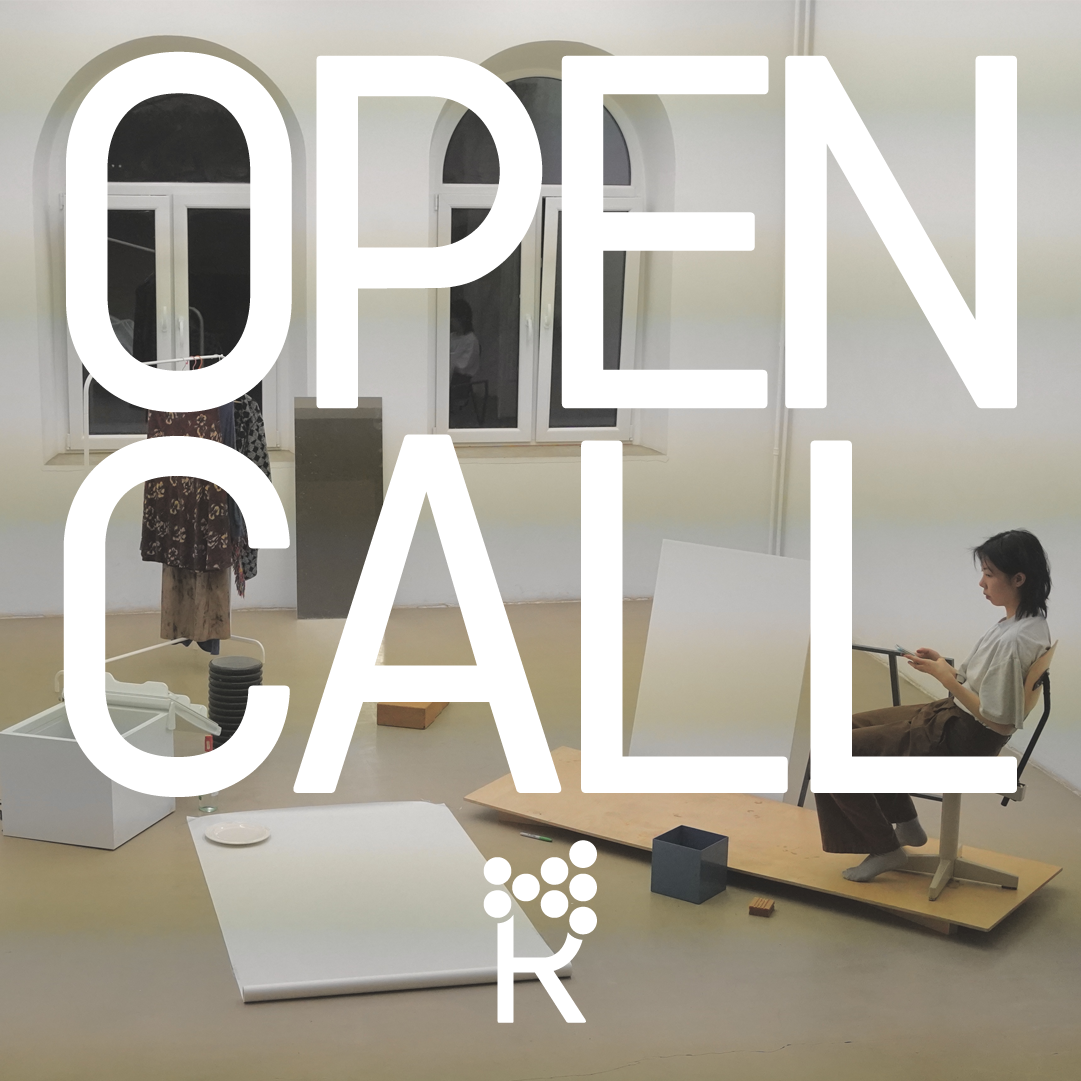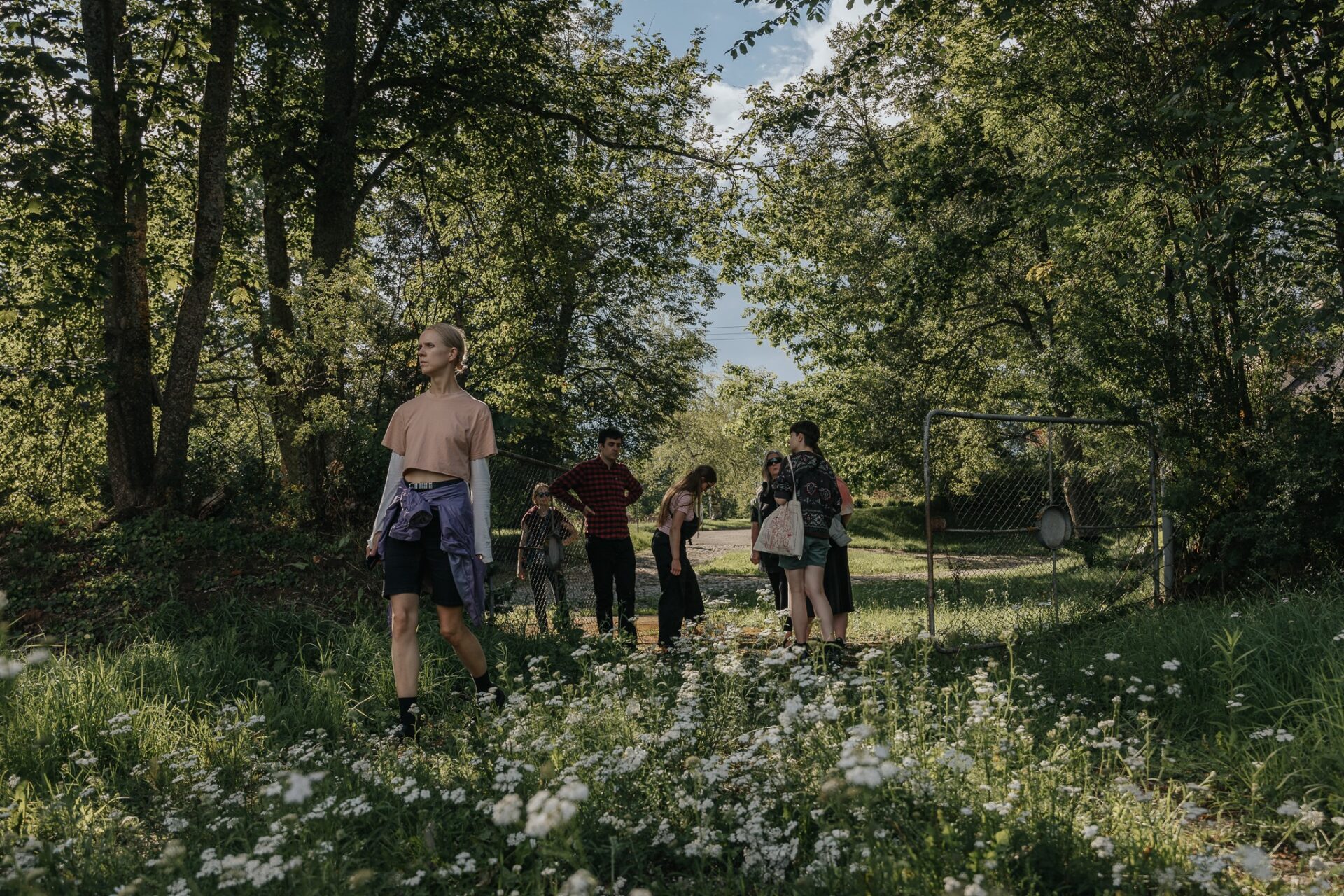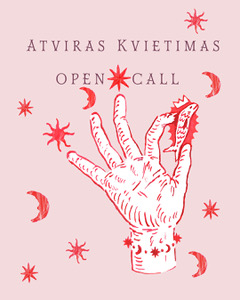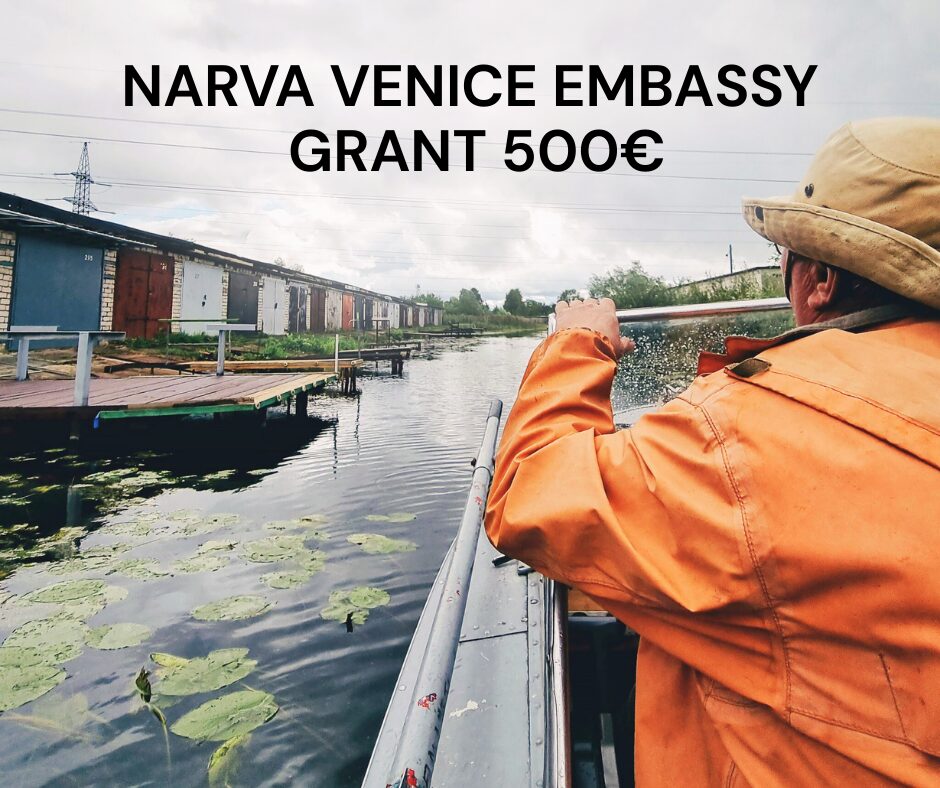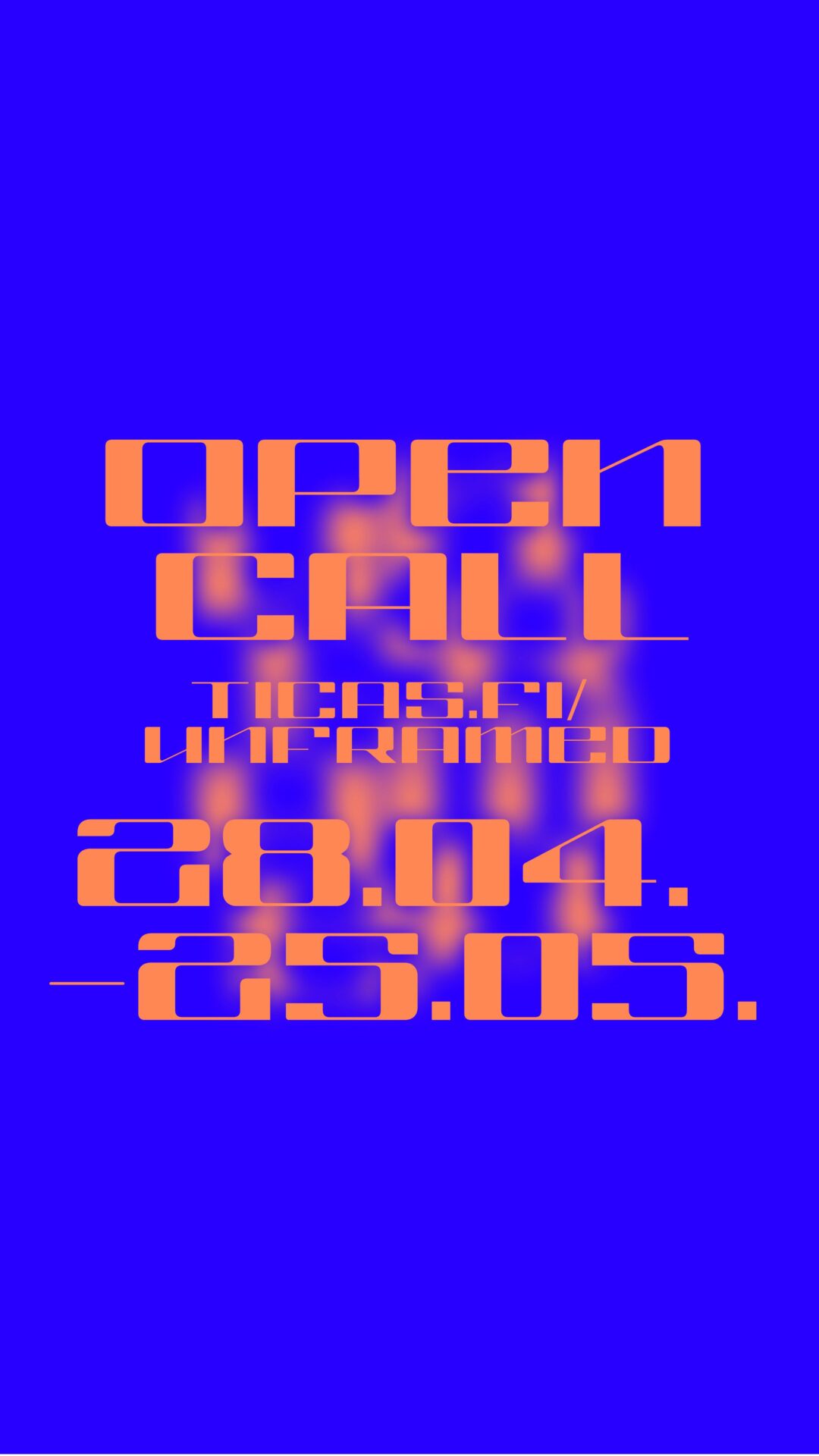“My childhood home is in Tukums, near the air field. Until the Restoration of Latvia’s independence in 1990, this infrastructural facility served as a Soviet reserve military airfield and nuclear weapons depot. When we were little, my brother and I spent a lot of time playing outside. Every time the low-flying military planes took off, we were thoroughly shaken by the eerie rumbling sound above our heads. We ran for cover on the gravel path home – clumsily falling, crying and scraping our knees and palms until they bled.
On 24 February, the world was shaken by Russia’s brutal and violent invasion of Ukraine. After overcoming the emotional paralysis of the first few days of the war, when all meaning of daily activities seemed to be lost, a long- forgotten childhood fear returned to me. Only this time… we are no longer just two of us.”
Kristīne Krauze-Slucka
The artist’s work is based on a sense of time and space about the destructive nature of war. “Arte povera”, or the so-called “art of poor materials”, refers not that much to the use of poor materials or a self-righteous sociological critique of society but rather an attempt to confront and reveal the experience of the human world. The recycled felt used in the installation – created by compressing the fibres of shredded fabrics – depicts a trauma that leaves an indelible mark on the individual’s personality. It is a landscape of fragmented identity that seeks to regain wholeness; these are the conditions that force one to transform and become the Other. The installation is accompanied by a soundtrack by Kaspars Jaudzems, which integrates intercepted messages from Russian soldiers on the front line and call recordings with the soldiers’ families back home.
Photography: Kristine Krauze-Slucka
